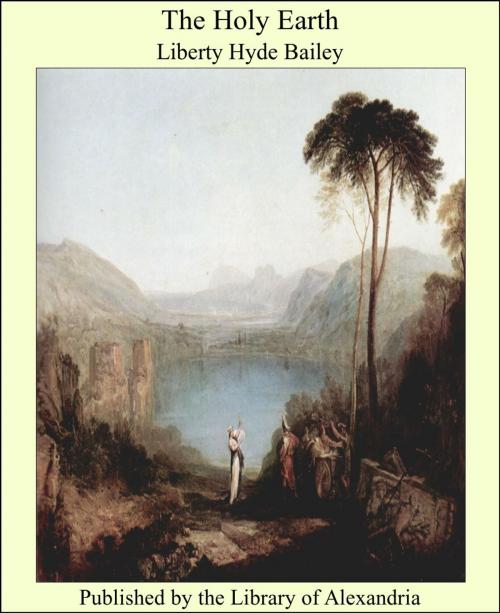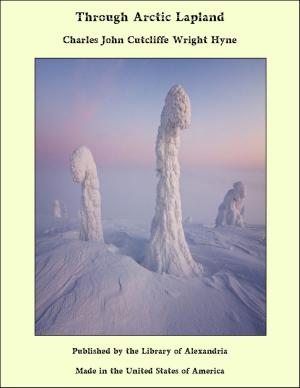| Author: | Liberty Hyde Bailey | ISBN: | 9781465536099 |
| Publisher: | Library of Alexandria | Publication: | March 8, 2015 |
| Imprint: | Language: | English |
| Author: | Liberty Hyde Bailey |
| ISBN: | 9781465536099 |
| Publisher: | Library of Alexandria |
| Publication: | March 8, 2015 |
| Imprint: | |
| Language: | English |
First, the Statement So bountiful hath been the earth and so securely have we drawn from it our substance, that we have taken it all for granted as if it were only a gift, and with little care or conscious thought of the consequences of our use of it; nor have we very much considered the essential relation that we bear to it as living parts in the vast creation. It is good to think of ourselves—of this teeming, tense, and aspiring human race—as a helpful and contributing part in the plan of a cosmos, and as participators in some far-reaching destiny. The idea of responsibility is much asserted of late, but we relate it mostly to the attitude of persons in the realm of conventional conduct, which we have come to regard as very exclusively the realm of morals; and we have established certain formalities that satisfy the conscience. But there is some deeper relation than all this, which we must recognize and the consequences of which we must practise. There is a directer and more personal obligation than that which expends itself in loyalty to the manifold organizations and social requirements of the present day. There is a more fundamental co-operation in the scheme of things than that which deals with the proprieties or which centres about the selfishness too often expressed in the salvation of one's soul. We can be only onlookers on that part of the cosmos that we call the far heavens, but it is possible to co-operate in the processes on the surface of the sphere. This co-operation may be conscious and definite, and also useful to the earth; that is, it may be real. What means this contact with our natural situation, this relationship to the earth to which we are born, and what signify this new exploration and conquest of the planet and these accumulating prophecies of science? Does the mOthership of the earth have any real meaning to us? All this does not imply a relation only with material and physical things, nor any effort to substitute a nature religion. Our relation with the planet must be raised into the realm of spirit; we cannot be fully useful Otherwise. We must find a way to maintain the emotions in the abounding commercial civilization. There are two kinds of materials,—those of the native earth and the idols of one's hands. The latter are much in evidence in modern life, with the conquests of engineering, mechanics, architecture, and all the rest. We visualize them everywhere, and particularly in the great centres of population. The tendency is to be removed farther and farther from the everlasting backgrounds. Our religion is detached
First, the Statement So bountiful hath been the earth and so securely have we drawn from it our substance, that we have taken it all for granted as if it were only a gift, and with little care or conscious thought of the consequences of our use of it; nor have we very much considered the essential relation that we bear to it as living parts in the vast creation. It is good to think of ourselves—of this teeming, tense, and aspiring human race—as a helpful and contributing part in the plan of a cosmos, and as participators in some far-reaching destiny. The idea of responsibility is much asserted of late, but we relate it mostly to the attitude of persons in the realm of conventional conduct, which we have come to regard as very exclusively the realm of morals; and we have established certain formalities that satisfy the conscience. But there is some deeper relation than all this, which we must recognize and the consequences of which we must practise. There is a directer and more personal obligation than that which expends itself in loyalty to the manifold organizations and social requirements of the present day. There is a more fundamental co-operation in the scheme of things than that which deals with the proprieties or which centres about the selfishness too often expressed in the salvation of one's soul. We can be only onlookers on that part of the cosmos that we call the far heavens, but it is possible to co-operate in the processes on the surface of the sphere. This co-operation may be conscious and definite, and also useful to the earth; that is, it may be real. What means this contact with our natural situation, this relationship to the earth to which we are born, and what signify this new exploration and conquest of the planet and these accumulating prophecies of science? Does the mOthership of the earth have any real meaning to us? All this does not imply a relation only with material and physical things, nor any effort to substitute a nature religion. Our relation with the planet must be raised into the realm of spirit; we cannot be fully useful Otherwise. We must find a way to maintain the emotions in the abounding commercial civilization. There are two kinds of materials,—those of the native earth and the idols of one's hands. The latter are much in evidence in modern life, with the conquests of engineering, mechanics, architecture, and all the rest. We visualize them everywhere, and particularly in the great centres of population. The tendency is to be removed farther and farther from the everlasting backgrounds. Our religion is detached















